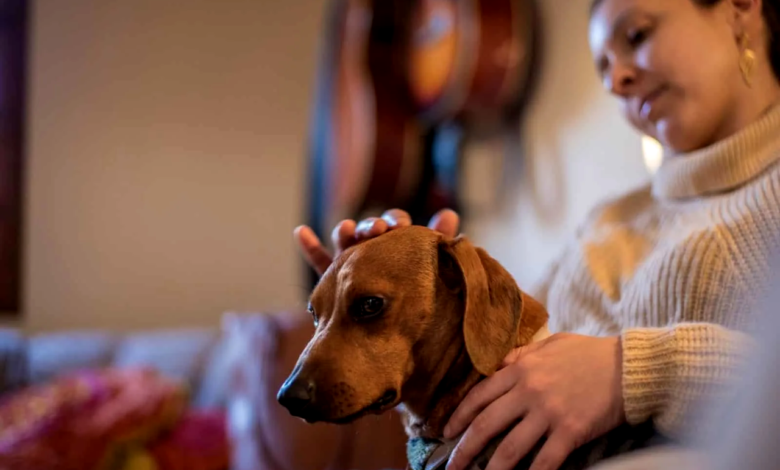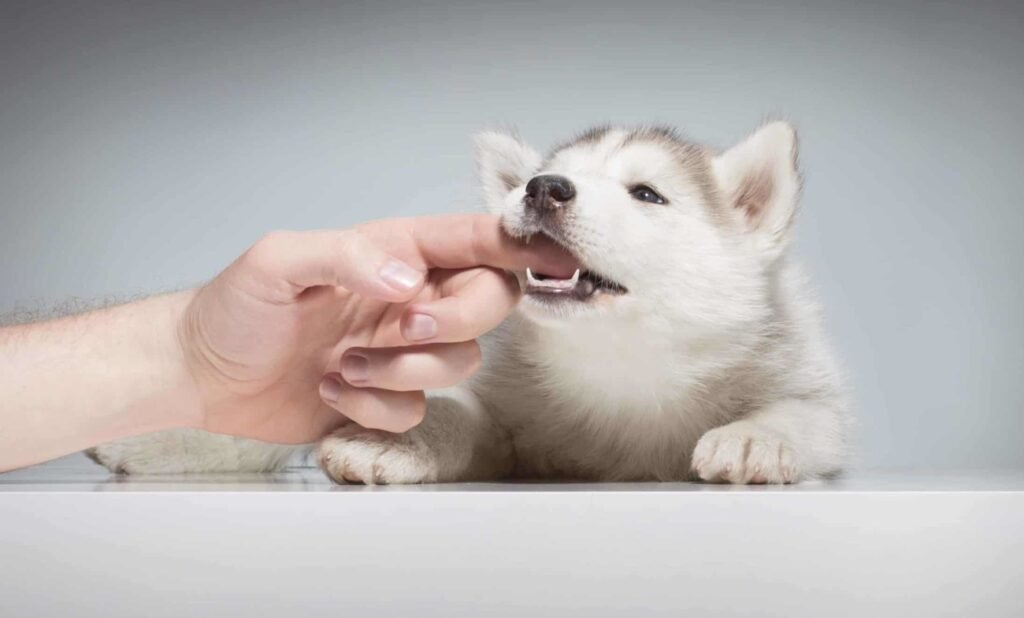
The Essential New Puppy Checklist
Bringing a new puppy into your life is an exhilarating experience, filled with joy and companionship. However, it also comes with a set of responsibilities that require careful consideration and preparation. In this guide, we’ll walk you through the essential new puppy checklist, providing valuable insights into making this transition smoother for both you and your furry friend.
Read More: Complete Guide for the First-Year Puppy Vaccinations
The Essential New Puppy Checklist

Before diving headfirst into the world of puppy parenthood, it’s crucial to select a breed that aligns with your lifestyle and preferences. Research different breeds, considering factors such as size, energy levels, and grooming requirements. Each breed has unique characteristics, so finding the perfect match for your family is a crucial first step.
Puppy-Proofing Your Home
Puppies are naturally curious and often explore their surroundings with unbridled enthusiasm. To ensure their safety, it’s essential to puppy-proof your home. Identify potential hazards such as electrical cords, small objects, and toxic plants. Create a safe space within your home equipped with a comfortable bed and a secure crate where your new puppy can retreat.
Essential Supplies
To welcome your new furry family member, it’s necessary to have the right supplies on hand. This includes a collar, leash, and identification tags for outdoor excursions. Food and water bowls, comfortable bedding, and a crate provide the foundation for a cozy and secure living space. Having these essentials ready before your puppy arrives helps them settle in with ease.
Nutrition and Feeding Schedule
Proper nutrition is paramount for a puppy’s growth and development. Choose a high-quality puppy food that meets their specific dietary needs. Establish a consistent feeding schedule, typically involving three to four meals a day for young puppies. This not only supports their health but also aids in the housebreaking process.
Basic Training Tips
Early training is fundamental for instilling good behavior in your puppy. Introduce basic commands like sit, stay, and come. Positive reinforcement, such as treats and praise, goes a long way in encouraging desired behaviors. Additionally, housebreaking is a critical aspect of training, and consistency is key to success.
Healthcare Basics

Ensuring your puppy’s health is a top priority. Schedule a visit to the veterinarian for vaccinations and preventive care. Establishing a relationship with a reliable veterinarian ensures your puppy receives the necessary medical attention throughout their life. Discuss a suitable vaccination schedule and preventive measures for common health issues.
Socialization Strategies
Socialization is vital for a well-adjusted and confident adult dog. Expose your puppy to various environments, people, and other animals from an early age. Consider enrolling them in puppy training classes and organizing playdates with other dogs. Positive interactions during this stage contribute to a balanced and sociable temperament.
Grooming and Hygiene
Regular grooming is essential for your puppy’s overall well-being. The frequency of grooming depends on the breed and coat type. Brush your puppy’s coat regularly, bathe them as needed, trim their nails, and attend to dental care. Introducing grooming routines early helps your puppy become comfortable with the process.
Creating a Routine
Puppies thrive on routine and predictability. Establish a consistent schedule for feeding, playtime, training sessions, and rest. A well-structured routine provides a sense of security for your puppy, helping them adapt to their new home more easily.
Addressing Behavioral Issues
It’s common for puppies to exhibit challenging behaviors, such as chewing, biting, or excessive barking. Identify and address these issues using positive reinforcement techniques. Instead of punishment, reward good behavior with treats and praise. If challenges persist, seek guidance from a professional dog trainer to ensure effective and humane training.
Exercise and Mental Stimulation
Puppies have boundless energy, and regular exercise is crucial for their physical and mental well-being. Tailor activities to your puppy’s age, breed, and energy levels. Engage them in play, walks, and interactive toys to provide both physical exercise and mental stimulation. This helps prevent boredom and encourages a well-balanced and happy puppy.
Monitoring Growth and Development
Keep a close eye on your puppy’s growth and development. Regular veterinary check-ups will ensure they are on track with their size, weight, and overall health. Adjust their care, nutrition, and exercise routines as needed to accommodate their changing needs as they grow.
Building a Strong Bond

Spending quality time with your puppy is crucial for building a strong and lasting bond. Participate in activities they enjoy, whether it’s playtime, walks, or simply cuddling on the couch. Use positive reinforcement to strengthen your connection, creating a trusting and loving relationship.
Conclusion
The journey of welcoming a new puppy into your home is both rewarding and challenging. By following this essential new puppy checklist, you’ll be well-prepared to navigate the early stages of puppyhood. Embrace the adventure, cherish the moments, and build a lasting bond with your furry friend that will bring joy for years to come.
Read More: Importance of Socializing Puppies
FAQs
- How do I choose the right puppy breed for my family? Consider factors such as size, energy levels, and grooming requirements. Research breeds that align with your lifestyle.
- When should I start basic training for my puppy? Start basic training as early as possible, ideally as soon as you bring your puppy home.
- What is the importance of socialization for puppies? Socialization helps puppies adapt to different environments, people, and animals. It contributes to the development of well-behaved and confident adult dogs.
- How often should I groom my puppy? The frequency of grooming depends on the breed and coat type. Generally, regular brushing and bathing are recommended.
- What should I do if my puppy exhibits behavioral issues? Use positive reinforcement techniques to address behavioral issues. Seek guidance from a professional dog trainer if needed.







